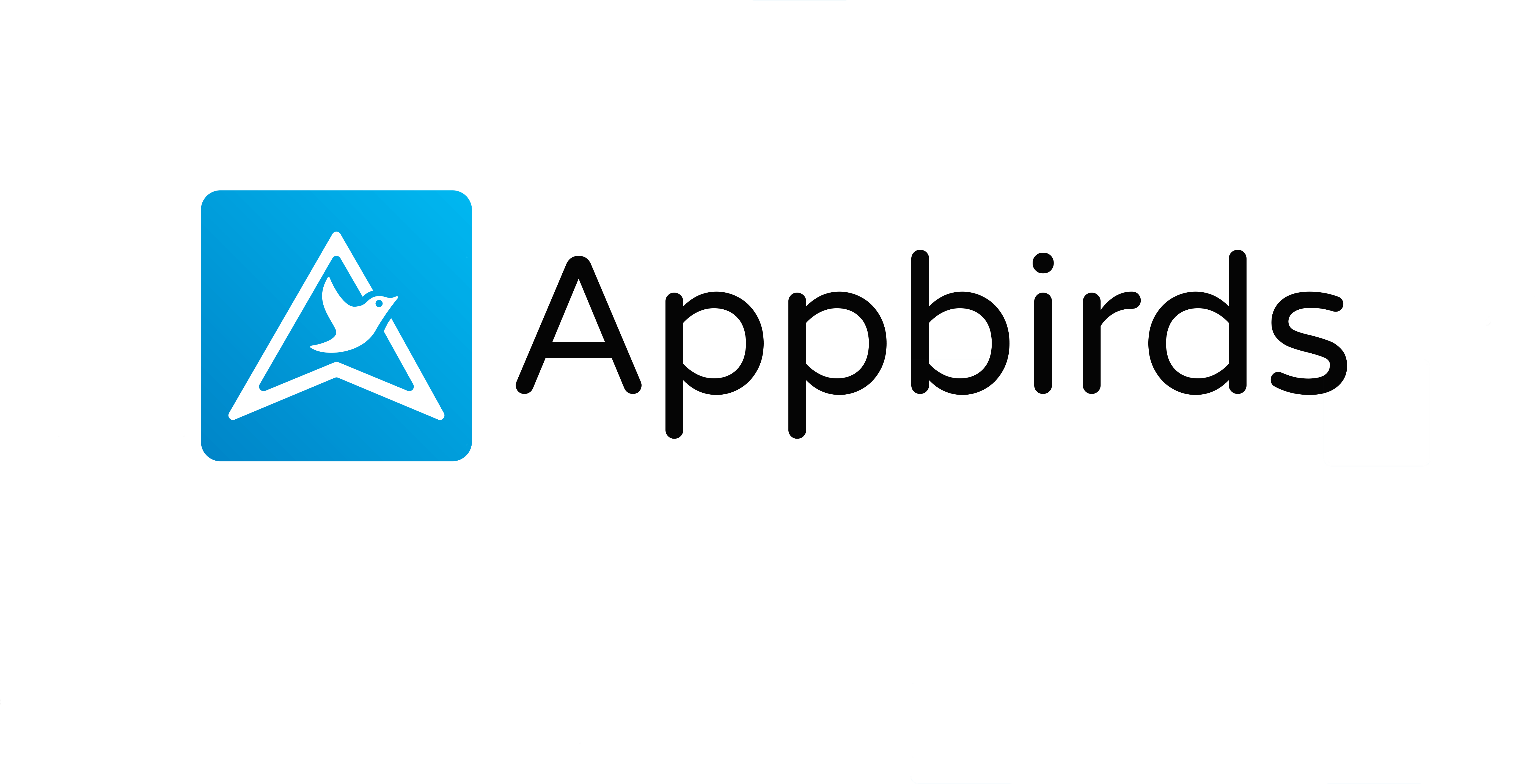In today’s fast-paced digital world, mobile applications are at the forefront of business success. Whether you’re a startup or a large enterprise, selecting the right mobile app development platform is crucial to delivering high-performance, scalable, and user-friendly applications.
At Appbirds Technologies, we specialize in crafting innovative mobile solutions tailored to modern business needs. This comprehensive guide explores the top mobile app development platforms that empower businesses to create high-quality applications efficiently and effectively.
Why Mobile App Development Platforms Matter
Just a few years ago, developing mobile apps was a complex and time-consuming process, requiring developers to work with multiple tools and frameworks. Today, mobile app development platforms have revolutionized the process by offering:
- Faster development cycles – Rapid prototyping and deployment.
- Reduced costs – Minimized development expenses with code reusability.
- Enhanced scalability – Seamless adaptation to growing user bases.
- Improved security and performance – Built-in security features and optimized efficiency.
Now, let’s explore the best mobile app development platforms businesses can leverage to build world-class applications.
Top Mobile App Development Platforms
1. Flutter
Flutter, developed by Google, is a cross-platform framework that allows developers to build natively compiled apps for mobile, web, and desktop from a single codebase. It stands out for its rich set of pre-designed widgets, fast development cycles, and a strong performance-driven architecture. With Flutter, businesses can create visually appealing applications that run seamlessly across multiple devices.
Why Choose Flutter?
- Hot Reload – Instantly see code changes without restarting the app.
- Beautiful UI – Customizable widgets for stunning designs.
- High Performance – Uses Dart for smooth, responsive applications.
- Cross-Platform Support – Deploy on iOS, Android, and more.
- Own Rendering Engine – Ensures a consistent UI across devices.
2. React Native
Backed by Meta (formerly Facebook), React Native enables businesses to build native-like applications using JavaScript and React. It provides an efficient development environment with a large ecosystem of libraries, making it an excellent choice for scalable and maintainable apps. Many global companies, including Instagram, Airbnb, and Tesla, leverage React Native for their mobile applications.
Why Choose React Native?
- Code Reusability – Develop once, deploy everywhere.
- Strong Community Support – Large developer base for troubleshooting.
- Native-Like Performance – Uses native components for a smooth UX.
- Hot Reloading – Enables real-time changes without restarting.
- Flexible & Scalable – Compatible with various third-party tools.
3. Swift
Swift, created by Apple, is the go-to programming language for developing high-performance iOS apps. Designed to be fast, safe, and expressive, Swift offers powerful development tools and seamless integration with Apple’s ecosystem. Whether building apps for iPhones, iPads, or Apple Watch, Swift ensures an optimized and smooth user experience.
Why Choose Swift?
- Speed & Efficiency – Faster than Objective-C and easy to learn.
- Safe & Secure – Modern syntax reduces coding errors.
- Seamless Integration – Works flawlessly with Apple’s ecosystem.
- Regular Updates – Continuously improved by Apple.
4. Kotlin
Kotlin, officially supported by Google, is the preferred language for Android app development. With its concise syntax, interoperability with Java, and enhanced safety features, Kotlin has quickly gained popularity among developers. It enables faster development, improved app stability, and seamless integration with Android Studio.
Why Choose Kotlin?
- Modern & Concise – Reduces boilerplate code compared to Java.
- Interoperable with Java – Easily migrate existing Java projects.
- Safe & Reliable – Minimizes common programming errors.
- Highly Scalable – Ideal for startups and enterprises alike.
5. Xamarin
Xamarin, powered by Microsoft, enables developers to build cross-platform mobile apps using C#. It allows code sharing across multiple platforms while maintaining native-like performance. With deep integration into Microsoft’s ecosystem, Xamarin is an ideal choice for enterprises looking for secure and scalable mobile solutions.
Why Choose Xamarin?
- Native-Like Experience – Provides near-native performance.
- Code Sharing – Reuse up to 90% of code across platforms.
- Secure & Scalable – Enterprise-level security features.
- Seamless Integration – Works well with Microsoft’s ecosystem.
6. Apache Cordova
Apache Cordova is a cross-platform framework that leverages HTML, CSS, and JavaScript for mobile app development. It allows developers to create mobile applications using familiar web technologies while accessing native device features through plugins. Cordova is a great option for businesses looking to transform web apps into mobile experiences.
Why Choose Apache Cordova?
- Plugin Support – Access native device features via plugins.
- Core Components – Pre-built functionalities for faster development.
- App Templates – Ready-to-use templates reduce development time.
- Supports Multiple Tools – Integrates with frameworks like Ionic.
7. Ionic
Ionic is an open-source framework that enables developers to create visually appealing mobile applications using web technologies. Built with HTML, CSS, and JavaScript, Ionic allows for the rapid development of hybrid apps with a single codebase. Its seamless integration with popular front-end frameworks makes it a powerful choice for web-first businesses.
Why Choose Ionic?
- Reduces Cost and Time – Single codebase for multiple platforms.
- Future-Proof – Built on open web standards for scalability.
- Leverage CI/CD – Automate app testing and deployment.
- Native Plugins – Provides access to native device features.
No-Code/Low-Code App Development Platforms
For businesses looking to develop apps rapidly with minimal coding, no-code and low-code platforms provide an efficient solution. These platforms offer drag-and-drop interfaces, allowing users to create apps without extensive programming knowledge.
Best No-Code/Low-Code Platforms
- Mendix – Offers both no-code and low-code development tools.
- OutSystems – AI-powered low-code platform for enterprise apps.
- Bubble – No-code app builder with AI integration.
- Appian – Fast, user-friendly no-code mobile app development.
- Zoho Creator – Pre-built templates for various industries.
Choosing the Right Mobile App Development Platform
The best mobile app development platform depends on several factors:
- Project Requirements – Do you need native, cross-platform, or hybrid development?
- Budget – How much can you invest in development?
- Timeframe – How quickly do you need the app launched?
- Target Audience – Will your app cater to iOS, Android, or both?
At Appbirds Technologies, we analyze your business needs and help you select the most suitable platform to develop high-quality, feature-rich, and scalable mobile applications.
Final Thoughts
Mobile app development platforms have transformed the way businesses build applications. Whether you choose Flutter, React Native, Swift, Kotlin, Xamarin, or other frameworks, each platform offers unique advantages tailored to different business needs.
Looking to develop a powerful mobile app? Appbirds Technologies is here to bring your vision to life with user-friendly, scalable, and future-ready applications.
Let’s build your dream app today! Contact us for a consultation.



